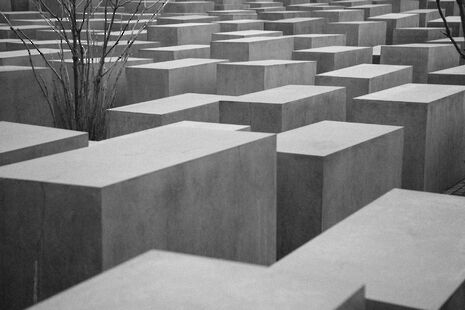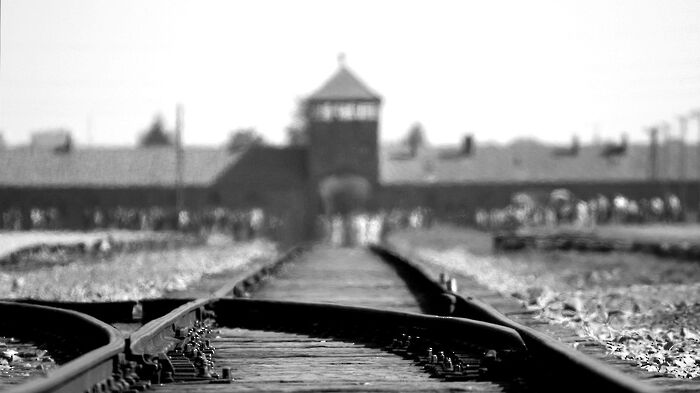The many forms of Holocaust denial
Free speech and critical debate are crucial when we reflect on the horrors of the past, argues columnist Naman Habtom-Desta

This International Holocaust Remembrance Day, Poland attracted headlines from across the world for its attempt to criminalise the use of the term ‘Polish death camps.’ While some are sympathetic to the nation that bore the first scars of the Second World War, do not let us forsake free speech and historical debate for the sake of a nation’s pride.
Since the end of the Cold War, there has been a gradual attempt to blur the historical record surrounding the Second World War in Eastern Europe. On the day meant to commemorate the liberation of Auschwitz by the Red Army, a church in Budapest had organised a mass in memory of Admiral Miklos Horthy, Hungary’s leader and an ally of Nazi Germany. While the event was ultimately cancelled, many were quick to come to the defence of the admiral of the landlocked nation, claiming that Horthy had already stopped the deportations of Jews by the summer of 1944 and that the worst came after him.
“Holocaust denial is vile, but selective truths are even more pernicious”
But Hungary and Poland are by no means alone. In some places, such as the Baltics, there has been a systematic attempt at equating the crimes of the Nazis with those of the Soviets, not necessarily with the hope of raising awareness of the latter but as a gateway for praising the former, or at the very least their allies. For example, Vilnius University in Lithuania announced last year that it would honour its Jewish students who died in the Holocaust, with one exception: that they must not have fought with the Soviets against the Nazis. We are not simply told that there is a right type of Jew but that there is a right type of Holocaust victim, even if you died fighting the Nazis.
Outside the borders of the European Union, Holocaust denial has taken its form through the scapegoating of the Nazis. This is not to say the Nazis were not the primary culprits – they were – but that the responsibility of other co-conspirators is somehow washed away. Since the start of their hostilities with the Russian Federation, the government of Ukraine has been quick to root out any communist vestiges left in the former Soviet republic, going so far as to ban ‘Communist and Nazi propaganda.’ Did you notice the sleight of hand there? ‘Communist’ does not simply refer to Soviet but covers the entire ideology, while ‘Nazi’ refers exclusively to Germany, not its fascist allies. Waving an Albanian communist flag? Off to jail! Commemorating Ukrainians who collaborated with the Nazis? No problem!
The greater danger here lies less in the obfuscation of historical fact (including preposterous suggestions like Netanyahu’s now-retracted claim that it was a Palestinian mufti, not Hitler, who was responsible for the crematoria) and more in the legal implications for the future of freedom of speech. What does ‘Polish death camps’ really mean? Allegedly, it implies that the extermination camps were set up, administered, and facilitated by Poles instead of Germans. However, would a reference to ‘an extermination camp in Poland’ also make one criminally liable?
Laws like these create a chilling atmosphere for those who value free thought. It is not a giant leap to go from censoring a three-word phrase to discouraging actual academic discourse on Polish complicity. Today it may be censoring ‘Polish death camps’, but tomorrow may try and prevent discussion of Polish attempts to send its Jewish population to Madagascar or to limit its Jewish student populations during the interwar years.
Holocaust denial is vile, but selective truths backed by the law are even more pernicious. Will a three-year prison sentence really convince someone of the veracity of the Shoah or simply make them a cause célèbre for free speech?
 Comment / Plastic pubs: the problem with Cambridge alehouses 5 January 2026
Comment / Plastic pubs: the problem with Cambridge alehouses 5 January 2026 News / Uni-linked firms rank among Cambridgeshire’s largest7 January 2026
News / Uni-linked firms rank among Cambridgeshire’s largest7 January 2026 News / New movement ‘Cambridge is Chopped’ launched to fight against hate crime7 January 2026
News / New movement ‘Cambridge is Chopped’ launched to fight against hate crime7 January 2026 News / SU stops offering student discounts8 January 2026
News / SU stops offering student discounts8 January 2026 News / Cambridge businesses concerned infrastructure delays will hurt growth5 January 2026
News / Cambridge businesses concerned infrastructure delays will hurt growth5 January 2026









